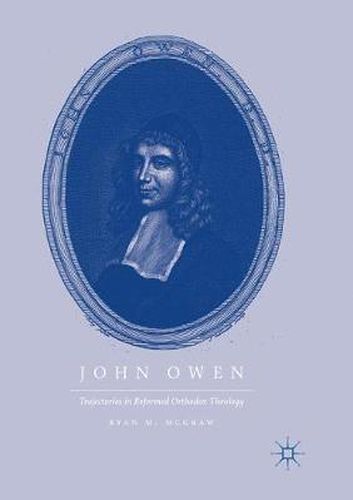Readings Newsletter
Become a Readings Member to make your shopping experience even easier.
Sign in or sign up for free!
You’re not far away from qualifying for FREE standard shipping within Australia
You’ve qualified for FREE standard shipping within Australia
The cart is loading…






This book is a thorough study of John Owen. Owen has become recognized as one of the greatest Reformed theologians Great Britain ever produced, as well as one of the most significant theologians of the Reformed orthodox period. His theological interests were eclectic, exegetically based, and he sought to meet the needs of his times. This volume treats key areas in Owen’s thought, including the Trinity, Old Testament exegesis, covenant theology, the law and the gospel, the nature of faith in relation to images of Christ, and prolegomena. The common theme tying them together is that John Owen helps us better understand the development and interrelationship of theology, exegesis, and piety in Reformed orthodox theology. By setting him in his international and cross-confessional contexts, the author seeks to use Owen as a window into the trajectory of Reformed orthodoxy in several key areas.
$9.00 standard shipping within Australia
FREE standard shipping within Australia for orders over $100.00
Express & International shipping calculated at checkout
This book is a thorough study of John Owen. Owen has become recognized as one of the greatest Reformed theologians Great Britain ever produced, as well as one of the most significant theologians of the Reformed orthodox period. His theological interests were eclectic, exegetically based, and he sought to meet the needs of his times. This volume treats key areas in Owen’s thought, including the Trinity, Old Testament exegesis, covenant theology, the law and the gospel, the nature of faith in relation to images of Christ, and prolegomena. The common theme tying them together is that John Owen helps us better understand the development and interrelationship of theology, exegesis, and piety in Reformed orthodox theology. By setting him in his international and cross-confessional contexts, the author seeks to use Owen as a window into the trajectory of Reformed orthodoxy in several key areas.